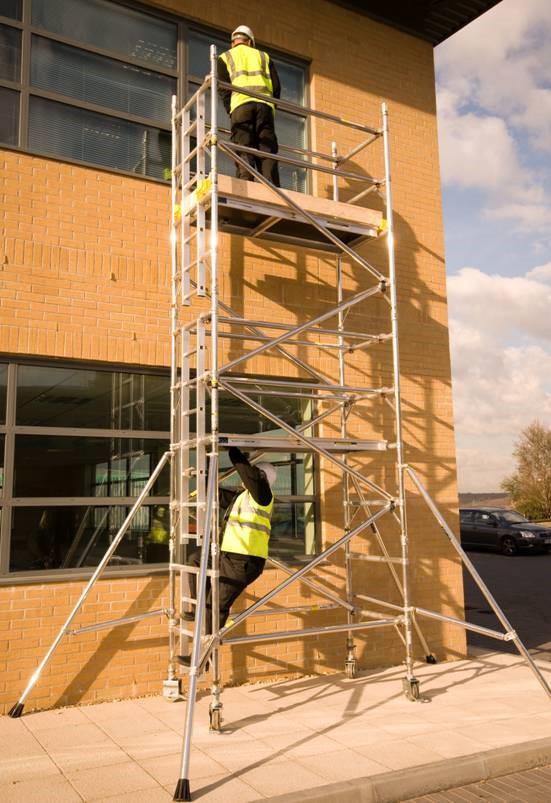
 |
Mark Sennett
Managing Editor |
 |
Kelly Rose
Editor |
| Home> | Slips, Trips & Falls | >Fall Prevention | >Mobile access towers training |
Mobile access towers training
04 February 2016
With an ever-expanding variety of mobile access towers available, for a diverse range of purposes, ensuring your staff receive relevant training on how to use them is more important than ever, Mentor Training explains.

Raising awareness of the specific risks and equipping tower users with the relevant skills and knowledge to work at height is a vital step towards a safer workplace. But the right training doesn’t just benefit your staff, it benefits you, and your business as a whole.
Aside from providing piece of mind, practical benefits and legal compliance, well trained staff actively contribute towards your bottom line. Don’t underestimate the financial gains to be made by developing a safe, efficient workforce. If they can get the job done safely and in good time, you can avoid costly accidents and disruptions and save thousands in damage repair bills, compensation claims and - perhaps most invaluably - preserve your company’s reputation.
PASMA accredited training
So how do you make sure you get the right training for your tower users? A good start is to look for a course accredited by the Prefabricated Access Suppliers and Manufacturers Association (PASMA), who provide the industry standard training scheme for Mobile Access Towers. Courses are only available from registered training providers, meaning that anyone offering PASMA accredited training meets their high standards.
PASMA have developed a full range of courses on all types of mobile access towers, be they full size, low level or even used on stairs. Each course covers tower components and key principles specific to the equipment type, alongside relevant best practice guidance. Delegates are trained in safe assembly and dismantling, tower stability, inspection and common hazards associated with their type of tower.
Not sure which course you need?
Have a look at our guide to finding the right access tower training course:
For those who need to use full size mobile scaffold towers:
Towers for Users
PASMA’s flagship course covers the fundamentals of assembling, moving, using and dismantling full size mobile access towers, and includes both 3T (‘through the trap’) and AGR (Advanced Guard Rail) tower systems.
For those who use low level access towers:
Low Level Access
The low level course covers best practice for the safe use of low level tower units and folding steps under 2.5m.
Combined Towers & Low Level
For those who use both low level and full size towers, the combined course offers Towers for Users and Low Level training in one condensed training day, delivered to a smaller group of delegates.
For those required to work on stairs:
Towers on Stairs
Developed for those who need to access areas positioned over stairs, Towers on Stairs provides specific guidance on the use of stepped access towers and the hazards associated with working at height in this challenging environment.
For those who work from assembled platforms…
Work at Height Essentials
The Work at Height Essentials course is designed for those required to work from the platform of a tower but not responsible for its assembly/moving/dismantling, providing delegates only the relevant fundamentals they require to work safely at height.
And for those who oversee the use of towers…
Towers for Managers
This course provides those responsible for overseeing the use of mobile access towers, with the skills and knowledge required to ensure towers are used safely and in line with relevant legislation and best practice.
Top tip: On-site training
You can further ensure training is kept relevant and beneficial to your delegates by holding courses at your own site. By utilising their own equipment and working environment, we’ve found that delegates are put at ease faster and instructors are able to ensure training is more applicable to their everyday roles, applications and site procedures. Training companies like Mentor can arrange for their instructors to come to you to carry out training, rather than you having to organise for delegates to attend an off-site facility, and even save you money in the process.
- Keeping best practice in check
- Best practice guidance
- More PASMA training and towers brought to you
- Forklift training:Where are your blind spots?
- Recognition for forklift training course
- PAL+ course
- Mentor updates EOTC safety guide
- Survey to identify risks facing forklift users
- IPAF and PASMA training
- Avoid complacency creep























